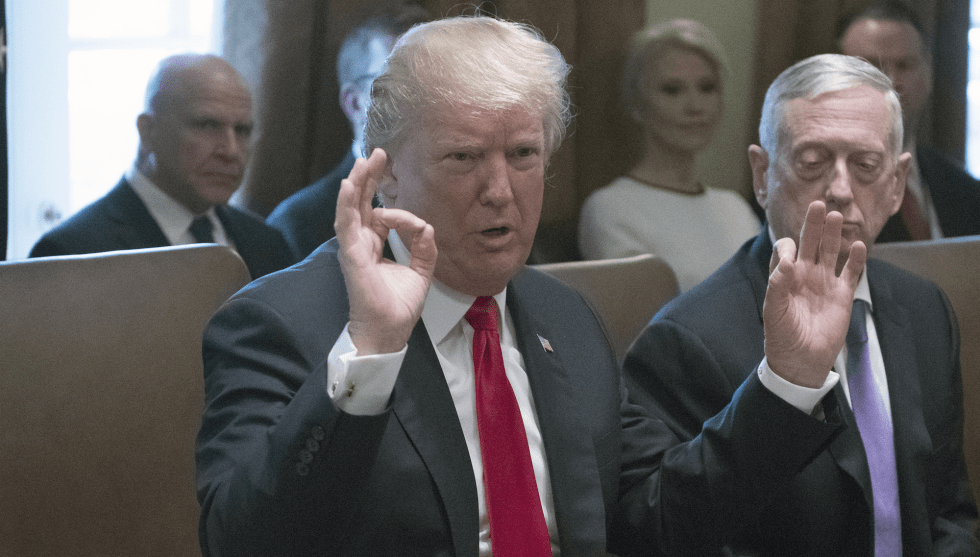
Ron Sachs/ZUMA
President Donald Trump on Wednesday announced that his administration will assess whether the country’s libel laws—which he blasted as a “sham” and a “disgrace”—could be revised in order to ramp up financial punishment against those who knowingly spread false and defamatory information.
“Our current libel laws are a sham and a disgrace and do not represent American values or American fairness, so we’re going to take a strong look at that,” Trump read from a statement during a cabinet meeting at the White House.
“You can’t say things that are false, knowingly false, and be able to smile as money pours into your bank account,” he added.
Trump’s remarks follow explosive details alleged in Michael Wolff’s book, Fire and Fury, which swung open the doors for a national conversation about Trump’s mental fitness. Since the book’s release last week, Trump has fiercely defended his competence, even taking to Twitter over the weekend to brand himself a “very stable genius.”
This is far from the first time Trump has threatened to go after libel laws. Throughout his campaign, the then-presidential candidate repeatedly vowed to “open up” and “reform” the laws to make it easier to sue the media. Trump also has a track-record of threatening legal action against his detractors. He vowed to sue the women who accused him of sexual misconduct but has yet to follow through. In 2007, Trump did sue the author Tim O’Brien for alleging he wasn’t as wealthy as he claimed to be, but that lawsuit was dismissed.
But as the Times recently noted, any effort to change the country’s existing libel laws would prove to be incredibly, almost insurmountably difficult.
There’s also, uh, the uncomfortable problem of this ever-expanding list.
















